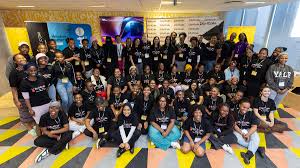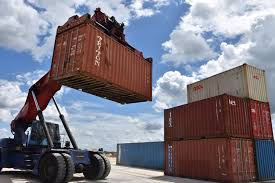Uganda’s tech innovation scene received a major boost this week after an all-female team of software engineering students from Makerere University emerged third overall in the 2025 GirlCode Hackathon, a pan-African technology competition celebrating young women innovators across the continent.
The team, known as Code Forces, was crowned Kampala regional winners before going on to claim third place continent-wide in the final rankings. Their innovation, Teleka, is a mobile-based savings and investment app designed to help students manage, track, and grow their finances responsibly.
The 11th edition of the GirlCode Hackathon, sponsored by Absa Bank Africa in partnership with GirlCode, was held simultaneously in eight African cities — including Johannesburg, Cape Town, Durban, Accra, Nairobi, Kampala, Dar es Salaam, and Gaborone — under the theme:
“Future-Proofing Africa: Innovation at the Intersection of FinTech, Cybersecurity, and AI.”
Uganda’s Code Forces team comprised Ann Treasure Karagwa, Ayan Mustafa Abdirahman, and Shakiran Nanyombi — all third-year students pursuing a Bachelor of Science in Software Engineering at Makerere University.
The overall winners were Tokiva Sisters from Tanzania, whose financial management platform earned them the grand prize of R100,000. Tech Gullies from Johannesburg took second place, while Uganda’s Code Forces proudly secured third.
“Tokiva Sisters impressed with a forward-thinking solution aimed at empowering young people to take charge of their finances,” said Zandile Mkwanazi, CEO of GirlCode. “Their creativity and dedication reflect the remarkable talent African women are bringing into the tech space.”
The GirlCode Hackathon aims to close the gender gap in Africa’s technology sector by equipping women with coding, design, and innovation skills. Now in its 11th year, the event has become a crucial platform for networking, mentorship, and hands-on innovation for young women in STEM fields.
“This year’s GirlCode Hackathon has been an inspiring showcase of talent, creativity, and problem-solving,” said Helen Basuuta Nangonzi, Director of Marketing and Customer Experience at Absa Bank Uganda.
“These young women have proven that when women innovate, communities thrive and economies grow.”
Tamu Dutuma, Head of Strategy and Transformation, Technology at Absa Regional Operations, emphasized that diversity and inclusion remain central to Absa’s technology strategy.
“It was inspiring to see participants tackle the same challenge from different perspectives. Empowering women in tech is not just a value — it’s a catalyst for meaningful change across Africa’s innovation landscape,” Dutuma noted.
This year’s hackathon marked a major expansion for Absa’s Africa-wide initiative, which grew from three countries in 2024 to five in 2025 — further deepening the bank’s commitment to nurturing female-led innovation ecosystems.
According to GirlCode, the 2025 event attracted hundreds of participants across the continent, competing in a 30-hour coding marathon to solve real-world challenges in financial technology, data security, and artificial intelligence.
The competition’s collaborative model allows teams from multiple African countries to share ideas and solutions, building cross-border partnerships that often outlast the event itself.
“The hackathon shows how collaboration drives innovation,” said Mkwanazi. “These young women built skills, confidence, and networks that will serve them well beyond this competition.”
Uganda’s impressive performance reflects its growing reputation as an emerging hub for female-led innovation. Makerere University and other local institutions have become central to nurturing talent through programs such as Resilient African Network, Outbox Hub, and Women in Tech Uganda.
Experts say Uganda’s consistent presence in international tech competitions signals an increasing focus on digital entrepreneurship, youth empowerment, and inclusive innovation.
“We’re incredibly proud of the Ugandan team,” said Nangonzi. “They have shown the world that young African women can lead innovation, not just participate in it.”
GirlCode aims to empower 10 million women and girls in Africa with digital and coding skills by 2030 through partnerships with leading technology firms, universities, and governments.
Absa, for its part, says it remains committed to expanding its support to more countries and campuses, ensuring more women are represented in Africa’s growing technology economy.
“Our partnership with GirlCode is about creating access, representation, and opportunities,” Dutuma concluded. “We’re investing in the future — and that future is female, innovative, and African.”



